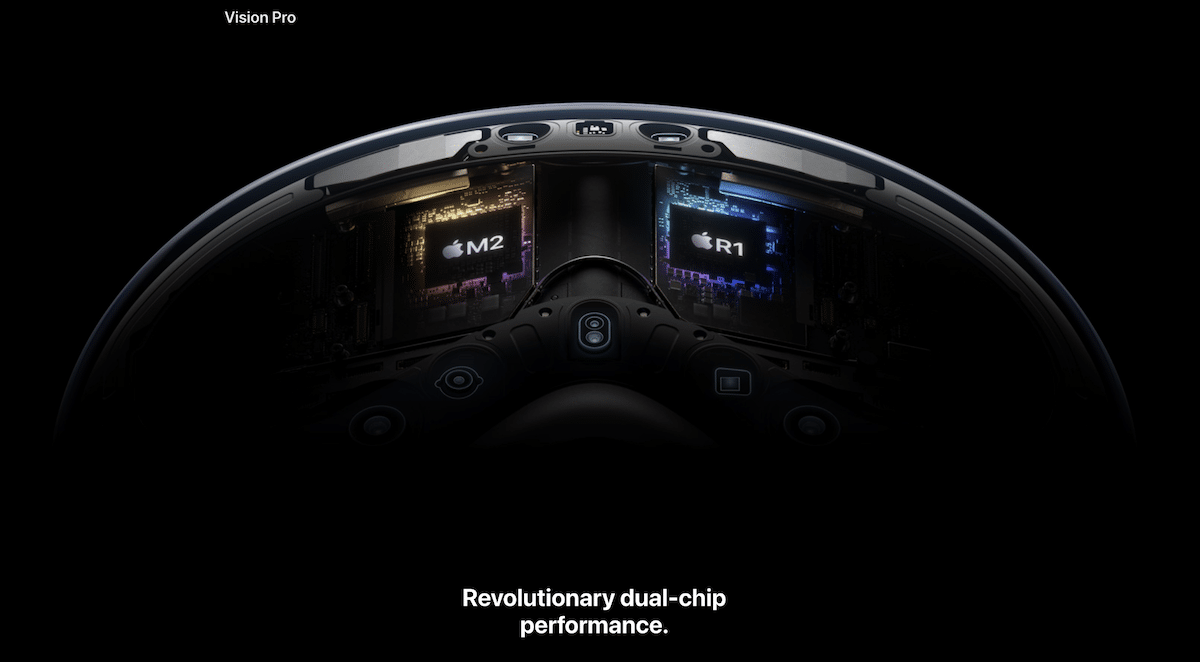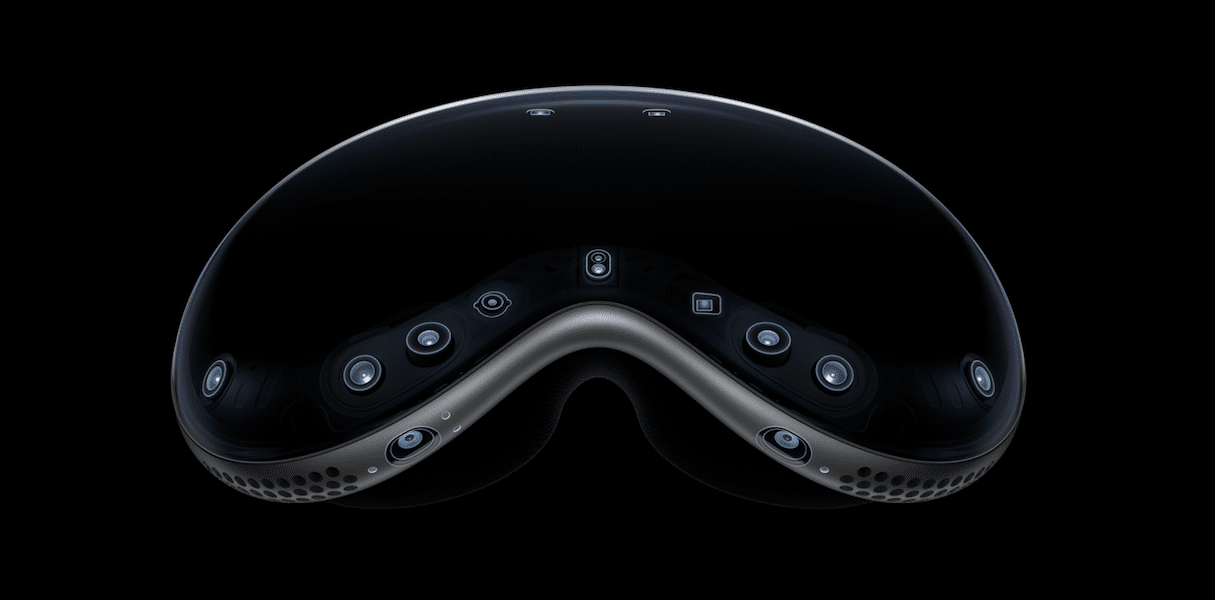Apple’s first spatial computer, Vision Pro is powered by a unique dual-chip system including the M2 and R1 chips. The advanced processors smoothly deliver 3D digital content in users’ physical space controlled by a revolution input system through hands, eyes, and voice.
Now, we know that the R1 chip is responsible for Vision Pro’s incredible lag-free and nausea-free immersive VR experience.

SK hynix provides Vision Pro’s R1 chip with custom 1-gigabit DRAM for a lag-free experience
In a recent interview with BBC Science Focus, spatial computing professor David Reid shared that Apple Vision Pro’s dual-chip system was potentially responsible for eliminating the motion sickness issue commonly experienced in VR headsets by dividing processing labor between M2 and R1 chips.
As the M1 chip processes graphics, vision algorithms, and running applications, and the R1 chip handles camera feeds, sensor inputs, and microphone audio, Vision Pro achieves an incredible response time of 12 milliseconds.
Corroborating that speculation, The Korean Herald reports that SK hynix has joined Apple’s supply chain and manufacturers the R1chip for Vision Pro with custom 1-gigabit dynamic random access memory (DRAM) to process the spatial inputs within 12 milliseconds.

Like new Low Latency Wide IO chips, the new DRAM design of the R1 chip doubles the data processing speed of the mixed reality headset to deliver a lag-free VR experience.
Apple’s R1 chipset can quickly process the spatial inputs from the device’s sensors and provide users with a lag-free three-dimensional experience. The R1 would enable the device to process all input within 12 milliseconds, which is eight times faster than the blink of an eye.
Its M2 processor will be working together with R1, responsible for running the operating system and applications.
Apple’s long-term partner, TSMC (Taiwanese Semiconductor Manufacturing Company) provides the M2 chip built on an advance 5nm process for the Vision Pro, along with the Macs and iPads.

Apple Vision Pro will launch in early 2024 in the United States for $3,499 starting with appointment-only purchases and will be sold in European, Asia, and other international markets by the end of 2024.
Read More:
- Apple Vision Pro tidbits: launch time, prescription, accessories and more
- Apple Vision Pro offers accessibility like VoiceOver, Pointer Control, and more
- Apple Vision Pro first impressions: “Nothing less than a genuine leapfrog”
- Apple working on inclusive Vision Pro accessories and a head scanning app